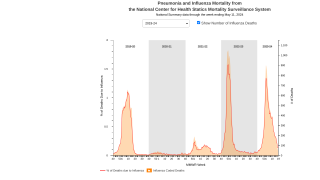Increasing Physician Reimbursed Boosted Flu Shot Uptake

Although immunization can dramatically reduce the mortality and morbidity associated with vaccine-preventable diseases, uptake remains suboptimal worldwide.
A systematic review and meta-analysis of strategies to promote vaccination uptake was recently published in Nature Human Behaviour. The review analyzed the results of 88 eligible randomized-controlled trials testing interventions from 17 countries.
Published on August 1, 2024, the researchers considered seven vaccine intervention strategies: increasing access to vaccination, sending vaccination reminders, providing incentives (e.g., money), supplying information, correcting misinformation, promoting active and passive motivation, and teaching behavioral skills.
“Public health officials often say that ensuring vaccine access is the first step to promoting immunization,” said co-author Dolores Albarracín, the Amy Gutmann Penn Integrates Knowledge University Professor at the University of Pennsylvania, in a press release.
“Our meta-analysis provides hard evidence supporting this recommendation and indicates that this should be a priority in under-resourced areas with limited access to health care.
Interventions to increase access to vaccines included offering transportation assistance or bringing vaccines to recipients at sites like nursing homes, family homes, and workplaces.
There was also a small effect of promoting financial incentives for healthcare providers.
For example, a U.S. study achieved an 85% influenza vaccination rate when physicians were reimbursed $1.60 per dose, compared with a 70% vaccination rate when they were reimbursed $0.80 per dose.
However, the effects of incentives were quite small in both this U.S. study and the estimates from the meta-analysis.
Our Trust Standards: Medical Advisory Committee























